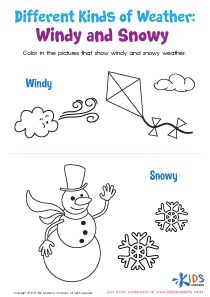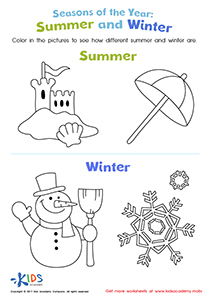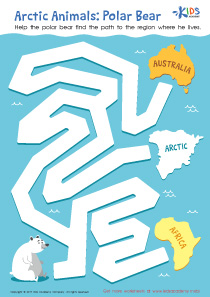Cognitive Development Kindergarten World Around Us Worksheets
6 filtered results
-
From - To
Explore our engaging "Cognitive Development Kindergarten World Around Us Worksheets," designed to enhance young learners' understanding of the environment. These carefully crafted materials support critical thinking and observation skills as children discover the wonders of nature and the world around them. Our worksheets incorporate fun activities that prompt inquiry and creativity, facilitating meaningful learning experiences. With a variety of topics, including animals, plants, weather, and simple physics, these resources are perfect for classroom use or at-home learning. Help your child flourish in cognitive skills while nurturing their curiosity about the world they inhabit with our captivating worksheets!
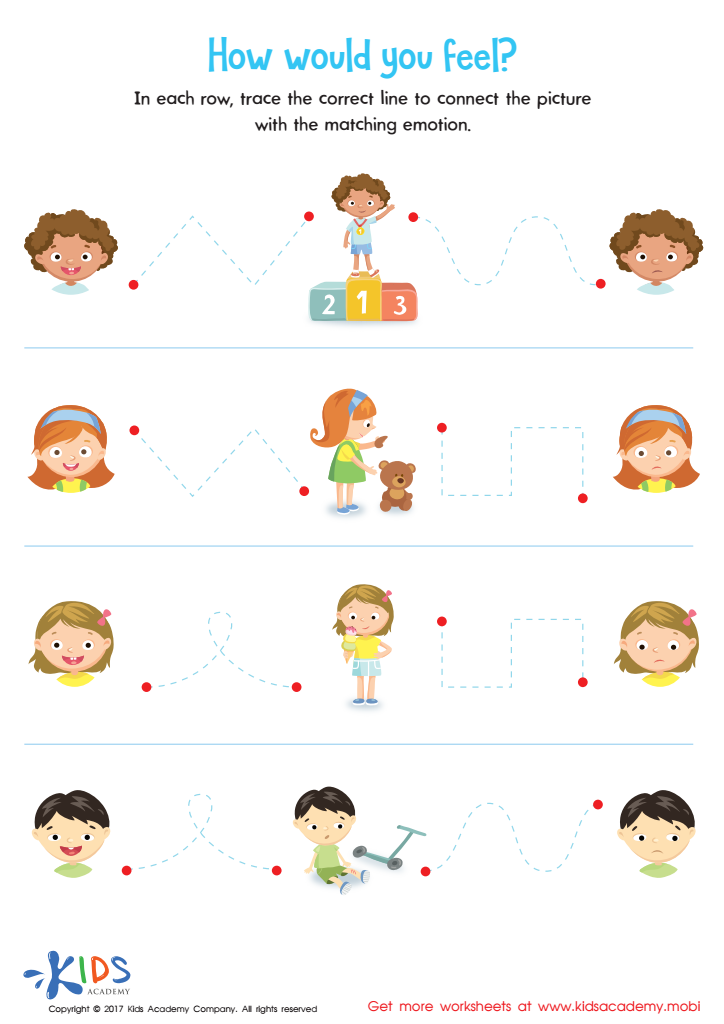

Feelings and Emotions Worksheet


Carnivores Worksheet
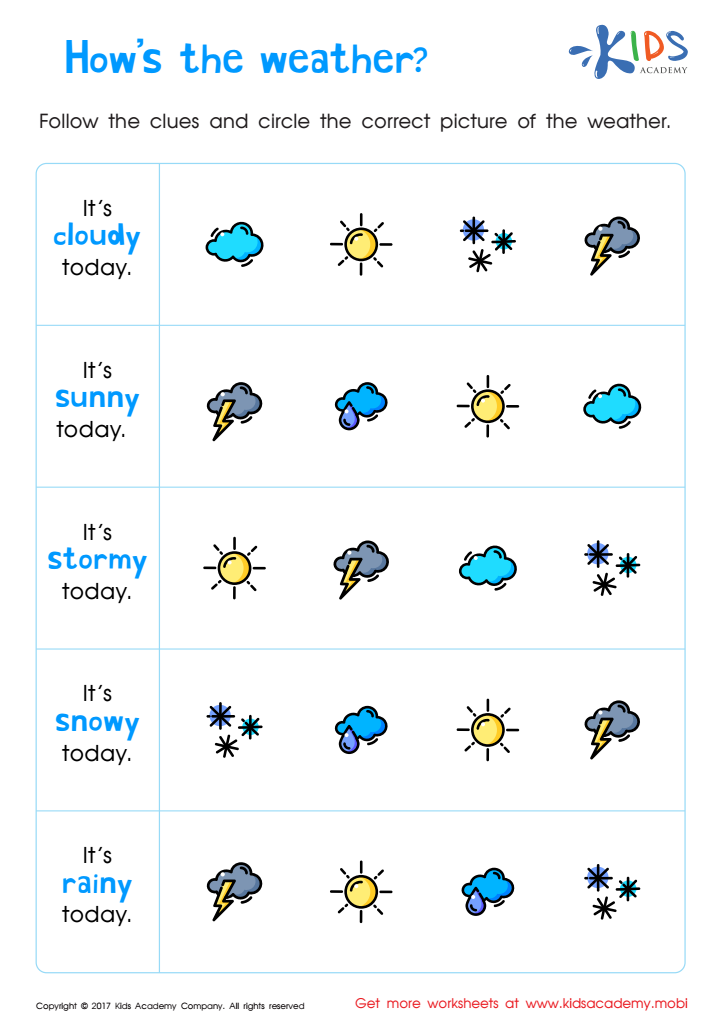

Hows the Weather Worksheet
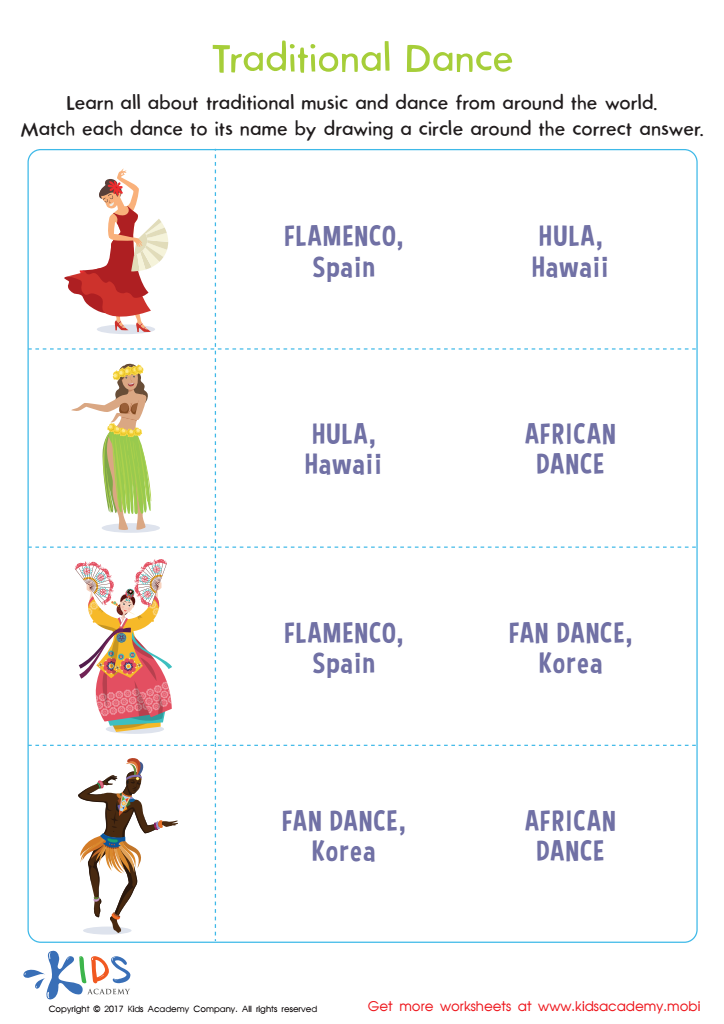

Traditional Dance Printable
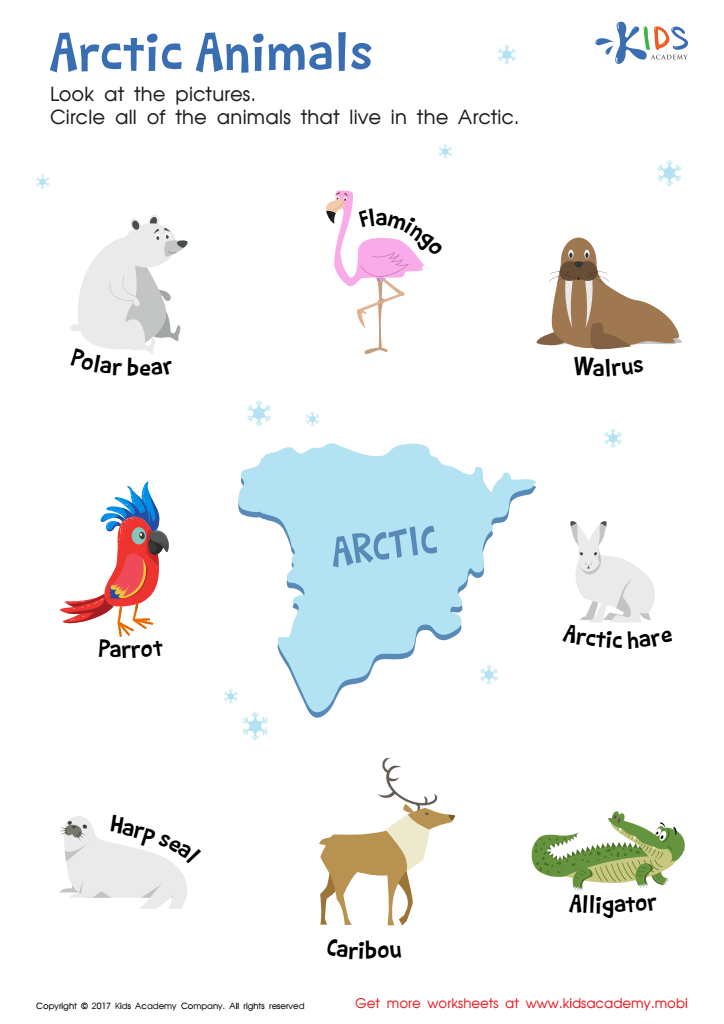

Arctic Animals Worksheet
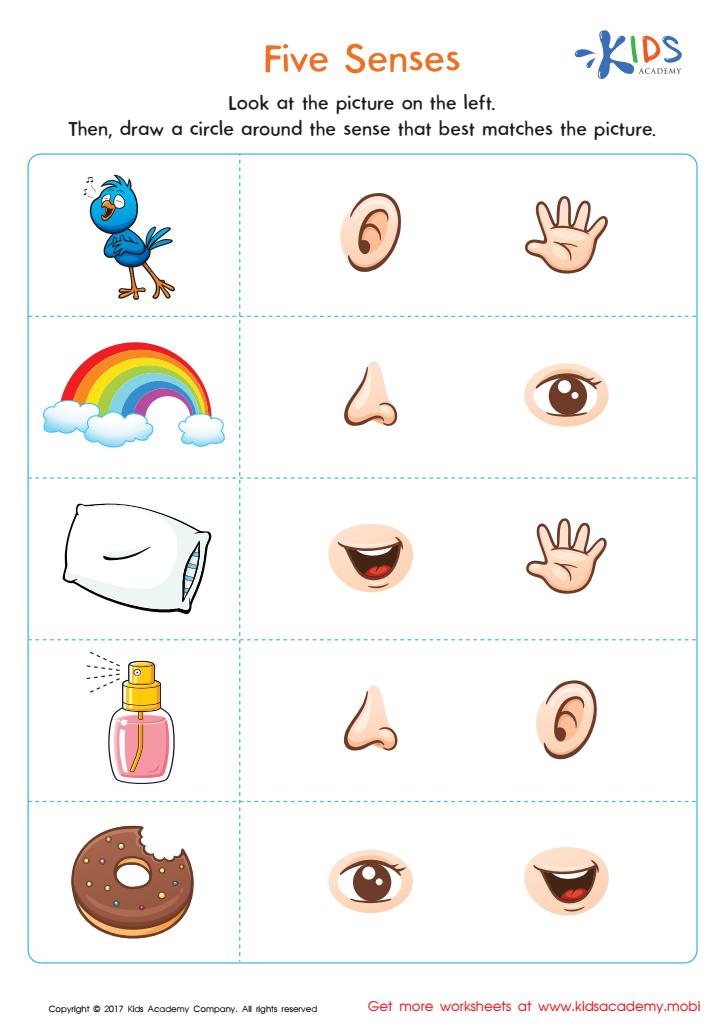

Five Senses Printable
Cognitive development during kindergarten is critical for children's overall growth, particularly in their understanding of the world around them. At this stage, children engage with their environment, learning how to think, reason, and solve problems. Parents and teachers should care about cognitive development because it lays the foundation for future academic success and social skills.
Effective cognitive development helps children enhance their critical thinking abilities, broadening their understanding of various concepts such as time, space, and relationships. Through exploration and focused activities, children develop curiosity and become more eager learners, setting a positive attitude towards education.
Teachers and parents are instrumental in guiding this process. They provide opportunities for meaningful interactions that foster cognitive skills, such as questioning, exploring, and hands-on experiences. Engaging children in these activities nurtures their imagination and creativity, making learning joyful.
Moreover, a strong cognitive foundation helps children navigate social situations, as they develop empathy and problem-solving skills crucial for their emotional intelligence. Overall, by prioritizing cognitive development, we equip our young learners with the necessary tools to thrive academically and socially, cultivating lifelong learners prepared to tackle challenges in an ever-changing world.
 Assign to My Students
Assign to My Students










.jpg)

